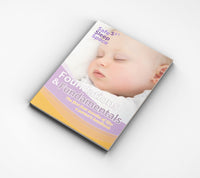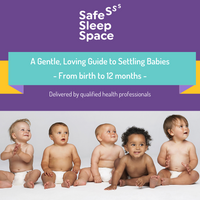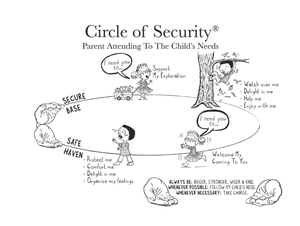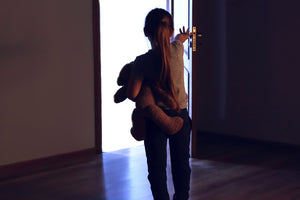When is it time to get help for my child’s sleeping?

There are some common themes when it comes to managing our children’s sleep. And although every baby and toddler is an individual, parents tend to share similar responses to sleeping problems. One is hoping that things will get better with time, the other is finding it difficult to ask for help.
Sleep is dynamic. Our children’s sleep is no exception and no two days, or nights, are exactly the same.
What’s Happened?
It’s normal for children to have periods of time when they sleep and settle more easily. For no apparent reason they may tend to fall asleep without too much fuss, sleep for reasonable lengths of time and are happy when they wake up. Then, something happens and all that lovely predictability just disappears.
Parents can agonise over why all of a sudden, things have changed. The truth is that we don’t always know why our baby/toddler’s sleep habits change for the worse. Like so many other mysteries of parenting, we don’t always come up with an answer.
There are however, several factors which seem to influence sleep and settling changes
Ten Common Reasons for Sleeping Changes
- Reaching a new developmental stage
- Teething
- Changes in environment – house move, starting childcare, a new baby in the family
- Illness – including incubating, having and/or recovering from an illness
- Changes in diet and eating pattern
- Hunger
- Thirst
- Transitioning from bassinette to cot and then a toddler bed
- Ambient noise, light and/or temperature
- Rolling one way but not the other. Typically, babies learn to roll first from their back to their front. Then they take a few weeks to learn how to roll from front to back.
Six Things We Know to be True About Infant/Toddler Sleep
- Sometimes sleep improves with time, but sometimes it gets worse. It can also stay the same for a long time.
- Sleep associations can change, but often, parents need specific support and guidance.
- Children know what they want, but parents know what they need. These can be very different.
- Change starts first with the parent and then the child. Children rarely initiate change on their own, even if their parent/s are struggling.
- Evidence based, gentle sleep management does not negatively affect children.As long as they are loved, happy, healthy, and thriving, the way they are managed at sleep time does no harm.
- Consistency and persistence is important. Change is not quick and it can take parents and children weeks to learn new skills in settling.
I Think I Can Do This...
Most of us have a range of coping skills which we call on when things get tough. From childhood, we’ve learned strategies around how to identify a problem, come up with a goal and then work towards achieving it. That works fine most of the time when problems aren’t too complex. However, once we’ve had children, approaching challenges is not so easy.
No matter what our professional background or expertise, becoming a parent creates a cataclysmic change in our lives.
Work skills do not translate across into our parenting - it’s just not that simple.
What Makes Parenting So Different?
It’s stating the obvious but becoming a parent changes everything. Whilst once it may have been relatively easy to make a plan and stick with it, the whole process of knowing what to do takes on a whole new meaning once we’ve had a small person.
- We’re exhausted. Our own sleep deprivation means we can’t think clearly or make decisions as easily as before having kids.
- We love our children. Hearing them cry causes us emotional pain and it’s in our DNA to respond to them quickly.
- We genuinely don’t know what to do. There’s a lot of conflicting advice about how best to manage our children’s sleep issues. It seems everyone’s an expert and has different ideas on what the best responses can be.
- Our partner is not always ‘on board’. Although ideal, consistency between partners doesn’t always happen.
- Our children’s temperament and personality. Some babies and toddlers just need more emotional reassurance than others.
- Combining paid work with looking after children can mean even more demands on our time. Most of us will do anything for sleep even if we know what we’re doing isn’t helping with long term change. We just want our child to go to sleep and are prepared to do whatever it takes to get them there.
But I Feel Guilty Asking for Help
The human race has survived for around 200,000 years. We are not meant to parent in isolation. Over this time, many parents have been supported by their extended family to nurture and raise the next generation.
Our current lifestyle has created an environment where parents are often left to care for their children without any assistance. Loneliness is a common emotion, as is feeling overwhelmed, confused and even resentful.
Asking for help is not failing, but rather, a sign of courage!
When is it Time to Ask for Help?
Every parent has their own threshold for putting up their hand. What’s timely for one may not be for another. We are all different.
However, there are some more common ‘red flags’ for parents of young children who don’t sleep well.
Are you?
- Feeling unable to cope anymore? Do you have a sense of being overwhelmed by your child/ren’s sleep and settling behaviour?
- Having thoughts of harm to yourself or your child? This is a ‘red flag’ for seeking help.
- Feeling depressed, anxious or have other mental health issues?
- Feeling as if your relationship with your child is being impacted by their sleep?
- Feeling your relationship with your partner or other children is being impacted?
- Exhausted by trying a range of sleep and settling strategies which are just not working?
- Feeling you need some ideas to help improve your child’s sleep? You don’t need to be desperate, just open to some improvements.
One big motivator for change is feeling hopeful for better days ahead. We tend to change what we’re doing when we are either desperate or optimistic.
Where Can I Go for Help?
For your child’s sleep and settling management-
- Your child health nurse
- Your GP or paediatrician
- Safe Sleep Space - known for it's gentle and response-based approach Safe Sleep Space is an early parenting consultancy group, that specialises in helping families with infant and toddler sleep and settling. Safe Sleep Space offer a range of services including sleep and settling telephone consultations, apps, videos, handbooks and more.
For Emotional Support
- Family and friends
- Parenting groups
- Your GP
- A psychologist or psychiatrist who specialises in post natal support
Help with looking after your baby
The NourishBaby - Guide to Babies - is an online program that you can view in your own time. The Guide to Babies helps you to understand and care for your baby and covers key milestones, sleep and settling advice and baby development. There is a section on real parents sharing their experience of adjusting to parenthood.
Many parents have reduced sleep when a new baby arrives. The Safe Sleep Space website has a variety of resources and supports to provide tips and advice on how to assist your baby with sleep. You can also book a phone consultation to speak with a Sleep Consultant.
Other blog posts you will find helpful:
When is it time to get help for my child's sleeping?
Why is infant mental health so important when it comes to sleep?
Amber beads. Why they're really not a good idea.
Why is my baby noisy when they sleep?
About Safe Sleep Space
Safe Sleep Space is Australia's leading infant and toddler sleep consultancy. Known for our gentle and response-based approach, our team of child health nurses, midwives, and early childhood educators have been supporting children and families since 2008. As a result, parents and professionals alike turn to Safe Sleep Space for knowledge relating to infant and toddler sleep.








